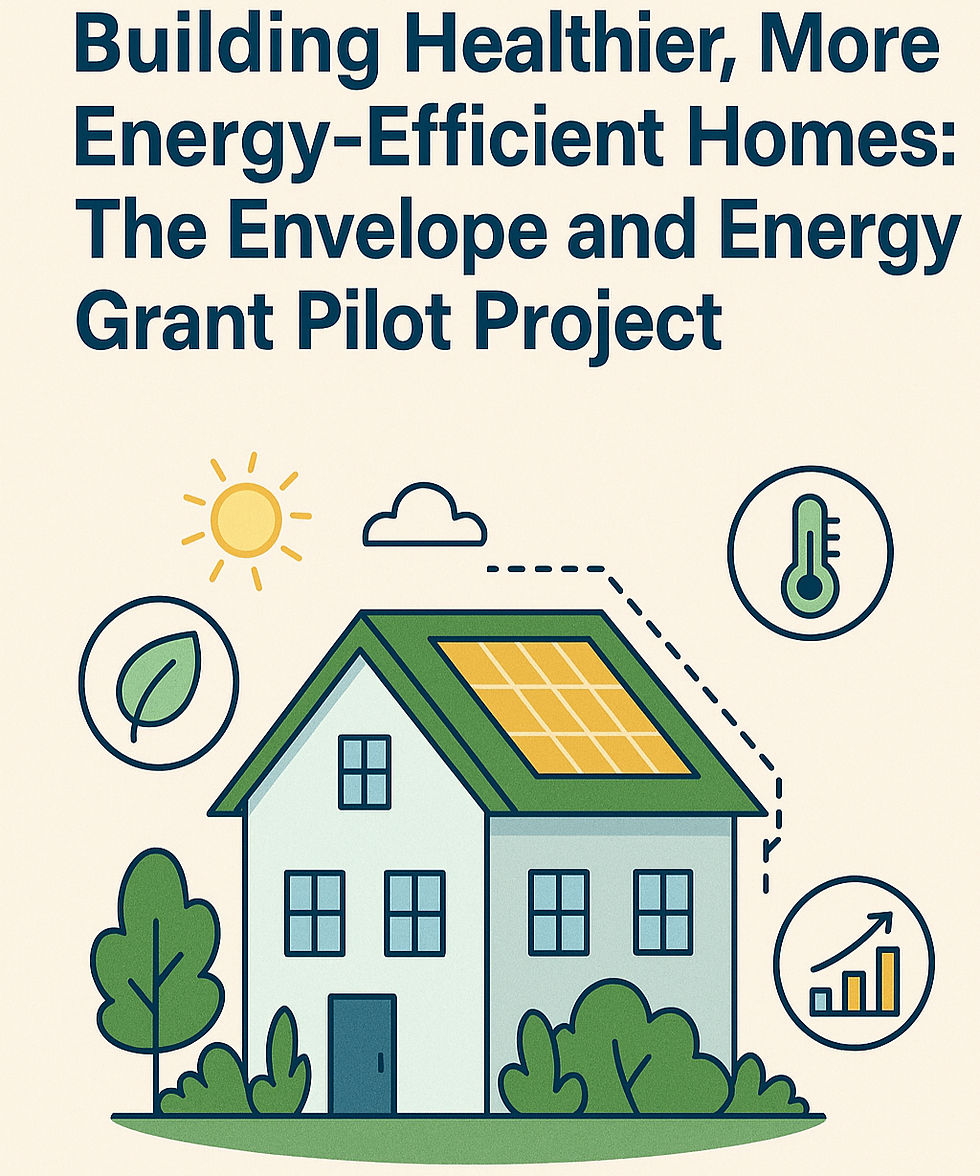“One, Big, Beautiful Bill” Will Affect Green Energy Tax Credits and Rebates
- localenergy
- May 21, 2025
- 3 min read
Updated: Jul 8, 2025

The One, Big Beautiful Bill was signed by President Donald Trump on July 7
President Donald Trump's proposed "One, Big Beautiful Bill" is going to significantly reshape the landscape of green energy initiatives, tax credits, and rebates available to homeowners across the United States, should the bill be passed. While the bill emphasizes tax cuts and increased spending in areas like border security and defense, it simultaneously proposes substantial reductions to green energy programs, including those that have directly benefited homeowners pursuing energy-efficient upgrades like solar.
The bill passed the House of Representatives on May 21, 2025 by a narrow margin of 215 - 214. The bill then passed the Senate with some amendments on July 1, 2025. The "One, Big Beautiful Bill" and was then sent back to the House of Representatives where the amendements were approved. The bill was signed by President Donald Trump on July 7 with the elimination of green energy rebates still in the bill.
Green Energy Tax Credits at Risk
A main component of the 2022 Inflation Reduction Act (IRA) was the provision of tax credits to homeowners for energy-efficient improvements. These credits included up to 30% off the cost of solar installations on private homes, significant rebates for electric vehicles, and rebates for energy-efficient appliances. Now, the "One, Big Beautiful Bill" threatens to eliminate or significantly reduce these incentives. The bill, which was passed by the House Budget Committee in a rare Sunday vote, proposes ending key tax credits established under the IRA, which have been instrumental in spurring nearly $150 billion in clean energy infrastructure and $75 billion in manufacturing investments since 2022.
The potential rollback of these credits could have an effect on the renewable energy sector, potentially freezing investments and increasing electricity costs in multiple states. Many worry that losing these credits and rebates could mean the end for progress already made in the green energy sector in the United States.
Home Energy Rebates in Jeopardy
The IRA also allocated $8.8 billion for home energy rebate programs, designed to help homeowners offset the costs of upgrading things like heat pumps, electric panels, and induction stoves. These rebates have been essential for homeowners seeking to reduce their energy consumption and utility bills, especially low-income homeowners who otherwise would not have been able to afford the upgrades.
While the funds for these programs have been largely frozen by the new administration, some programs have been able to continue. These include the 30% rebates for solar installation that still exists in the 2025 tax code. The "One, Big Beautiful Bill" would end these rebates.
Homeowners looking to install solar are encouraged to do so within the 2025 calendar year.
Broader Implications for Green Energy
Beyond individual homeowner incentives, the proposed bill's cuts to clean energy subsidies could have far-reaching implications for the industry as a whole, which has come to rely on these rebates and tax credits to remain viable. The elimination of tax breaks for solar, wind, battery storage, and clean hydrogen projects could potentially lead to job losses and reduced economic growth in regions that have benefited from clean energy investments.
Conclusion
President Trump's "One, Big Beautiful Bill" represents a significant shift in federal policy attacking green energy initiatives and homeowner rebates and tax credits. This move risks reversing decades of progress, potentially marking a disappointing shift away from the United States’ position as a global leader in green energy innovation. Instead of investing in technologies that drive the future, such as wind, solar, battery storage, and advanced grid systems, it signals a return to outdated fossil fuel infrastructure. Such a move gives up a critical economic opportunities including the chance to lead in the rapidly growing global clean energy market, create high-quality jobs, and secure energy independence from Middle Eastern oil through sustainable means.
While the bill aims to extend tax cuts for higher income earners and increase spending in certain areas, it simultaneously proposes substantial reductions to programs that have been instrumental in advancing green energy adoption and helping lower income homeowners reduce their energy costs.
As the bill moves through Congress, its potential impact on the renewable energy sector and homeowner incentives warrants a close watch. Homeowners should stay informed about the bill’s progress and be prepared to adapt to a changing landscape that could reshape the future of green energy in the United States.
Homeowners who have been considering solar should not wait much longer if the tax credits are needed to make a solar system financially feasible. Cook County residents can join the Solar United Neighbor’s Northeast Minnesota Solar Co-op, and save by using the co-op model to purchase solar. Learn more about the co-op model and the upcoming June online informational meeting on our blog.




Comments